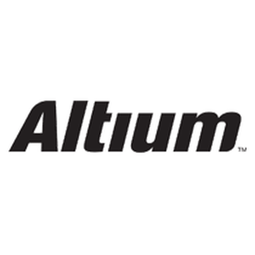Technology Category
- Sensors - Acoustic Sensors
- Sensors - Level Sensors
Applicable Industries
- Electronics
- Equipment & Machinery
Applicable Functions
- Product Research & Development
Use Cases
- Time Sensitive Networking
Services
- System Integration
About The Customer
Linn Products is a company that designs, manufactures, and sells high-end audio and home theatre systems. Since its inception in 1972, it has become an icon in the music industry, developing some of the most well-engineered audio and home systems. The company is built on the philosophy that 'music is for life', a belief that is reflected in its products. Linn Products is not just about developing impressive hi-fi systems, but about realizing the intention of the musician. The company designs, manufactures, and ships all its products from its headquarters in Glasgow, Scotland.
The Challenge
Linn Products, a company renowned for its high-end audio systems, faced a significant challenge when it decided to update its flagship product, the Sondek LP12 turntable, which was originally developed in 1972. The company needed to incorporate a new phono stage, named Eureka, into the LP12, a task that seemed almost impossible given the constraints of the turntable's design. The aesthetics of the audio systems were also crucial for Linn Products, requiring the electronics to be as visually appealing as the external casings. Prior to this, Linn Products had been using a series of disparate tools for its electronic designs, which resulted in a lack of clear link between the schematic and the board layout. This led to engineers spending more time maintaining the tool than being creative, which was not conducive to the company's philosophy of 'music for life'.
The Solution
Linn Products turned to Altium Designer to overcome these challenges. Altium Designer's ECAD MCAD features allowed the company to quickly verify that folding the schematics in half would enable the two parts of the board to nest together, thus fitting the new phono stage within the constraints of the 1970s turntable design. This brought a new lease of life to the product. Altium Designer also unified the design process, providing a higher level of abstraction that allowed the engineers at Linn Products to be more creative. The use of hierarchical design and other unique features of Altium enabled Linn Products to take a high-level view of the electronic design, eliminating the need for low-level detail. Furthermore, Altium Designer met the company's need for a unified electronics design system that went beyond just the electronics design, as it allowed the engineers to output and customize their data to the needs of the on-site manufacturing team.
Operational Impact

Case Study missing?
Start adding your own!
Register with your work email and create a new case study profile for your business.
Related Case Studies.

Case Study
Smart Water Filtration Systems
Before working with Ayla Networks, Ozner was already using cloud connectivity to identify and solve water-filtration system malfunctions as well as to monitor filter cartridges for replacements.But, in June 2015, Ozner executives talked with Ayla about how the company might further improve its water systems with IoT technology. They liked what they heard from Ayla, but the executives needed to be sure that Ayla’s Agile IoT Platform provided the security and reliability Ozner required.

Case Study
IoT enabled Fleet Management with MindSphere
In view of growing competition, Gämmerler had a strong need to remain competitive via process optimization, reliability and gentle handling of printed products, even at highest press speeds. In addition, a digitalization initiative also included developing a key differentiation via data-driven services offers.

Case Study
Predictive Maintenance for Industrial Chillers
For global leaders in the industrial chiller manufacturing, reliability of the entire production process is of the utmost importance. Chillers are refrigeration systems that produce ice water to provide cooling for a process or industrial application. One of those leaders sought a way to respond to asset performance issues, even before they occur. The intelligence to guarantee maximum reliability of cooling devices is embedded (pre-alarming). A pre-alarming phase means that the cooling device still works, but symptoms may appear, telling manufacturers that a failure is likely to occur in the near future. Chillers who are not internet connected at that moment, provide little insight in this pre-alarming phase.

Case Study
Remote Temperature Monitoring of Perishable Goods Saves Money
RMONI was facing temperature monitoring challenges in a cold chain business. A cold chain must be established and maintained to ensure goods have been properly refrigerated during every step of the process, making temperature monitoring a critical business function. Manual registration practice can be very costly, labor intensive and prone to mistakes.

Case Study
Premium Appliance Producer Innovates with Internet of Everything
Sub-Zero faced the largest product launch in the company’s history:It wanted to launch 60 new products as scheduled while simultaneously opening a new “greenfield” production facility, yet still adhering to stringent quality requirements and manage issues from new supply-chain partners. A the same time, it wanted to increase staff productivity time and collaboration while reducing travel and costs.








